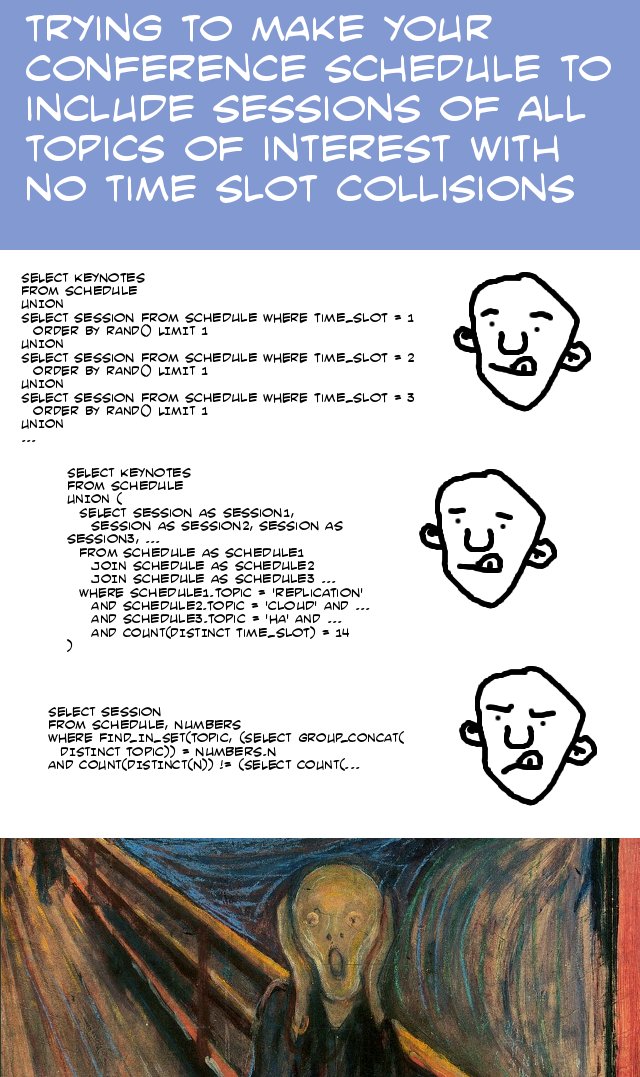This is a simple step-by-step introduction to rdebug: Debugger and Debugging API for MySQL Stored Routines, as part of common_schema.
In other words: let me take you through the steps for debugging your stored routines on your own server. We will step into, step over, step out, modify variables, set a breakpoint, run to breakpoint…
Command line geeks, this one’s for you. GUI lovers, this is actually an API; I am hoping for someone wrap it up with a plugin for your favorite GUI editor.
Requirements:
- Install common_schema 2.0 or above (at this time of writing 2.0.0-alpha is released).
- Get sample data & routine file [download id=”4″ format=”1″]
- mysql> SOURCE rdebug_demo.sql_.txt
- You should now have a table called color_count in the test database, along with two routines: review_colors() and review_single_color().
- Open two sessions. We call them the debugger session and the worker session. The worker session will execute the routine; the debugger session will control it.
Walk-through: preparation
Walk this thing with me. We will alternate between the debugger and the worker. Continue reading » “Taking common_schema’s rdebug to a test-drive”
